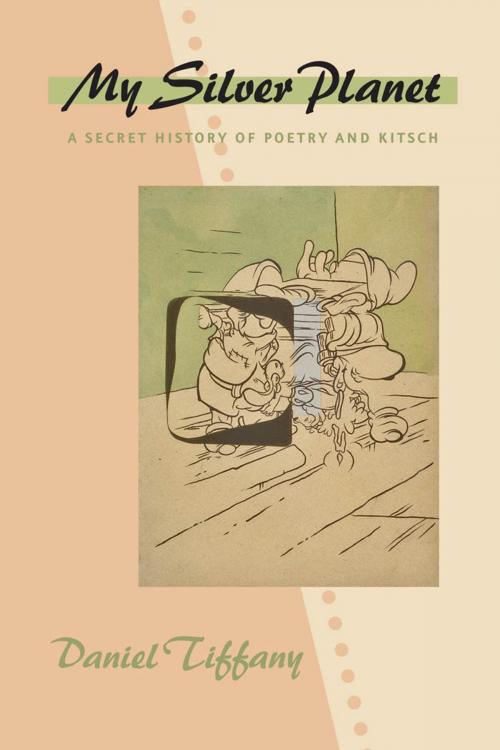My Silver Planet
A Secret History of Poetry and Kitsch
Fiction & Literature, Literary Theory & Criticism, Poetry History & Criticism, Theory| Author: | Daniel Tiffany | ISBN: | 9781421411460 |
| Publisher: | Johns Hopkins University Press | Publication: | December 23, 2013 |
| Imprint: | Language: | English |
| Author: | Daniel Tiffany |
| ISBN: | 9781421411460 |
| Publisher: | Johns Hopkins University Press |
| Publication: | December 23, 2013 |
| Imprint: | |
| Language: | English |
Taking its title from John Keats, My Silver Planet contends that the problem of elite poetry’s relation to popular culture bears the indelible mark of its turbulent incorporation of vernacular poetry—a legacy shaped by nostalgia, contempt, and fraudulence. Daniel Tiffany reactivates and fundamentally redefines the concept of kitsch, freeing it from modernist misapprehension and ridicule, by tracing its origin to poetry’s alienation from the emergent category of literature. Tiffany excavates the forgotten history of poetry’s relation to kitsch, beginning with the exuberant revival of archaic (and often spurious) ballads in Britain in the early eighteenth century. In these controversial events of poetic imposture, Tiffany identifies a submerged pact—in opposition to the bourgeois values of literature—between elite and vernacular poetries.
Tiffany argues that the ballad revival—the earliest explicit formation of what we now call popular culture—sparked a perilous but seemingly irresistible flirtation (among elite audiences) with poetic forgery that endures today in the ambiguity of the kitsch artifact: Is it real or fake, art or kitsch? He goes on to trace the genealogy of kitsch in texts ranging from nursery rhymes and poetic melodrama to the lyric commodities of Baudelaire. He scrutinizes the fascist "paradise" inscribed in Ezra Pound’s Cantos as well as the avant-garde poetry of the New York School and its debt to pop and "plastic" art. By exposing and elaborating the historical poetics of kitsch, My Silver Planet transforms our sense of kitsch as a category of material culture.
Taking its title from John Keats, My Silver Planet contends that the problem of elite poetry’s relation to popular culture bears the indelible mark of its turbulent incorporation of vernacular poetry—a legacy shaped by nostalgia, contempt, and fraudulence. Daniel Tiffany reactivates and fundamentally redefines the concept of kitsch, freeing it from modernist misapprehension and ridicule, by tracing its origin to poetry’s alienation from the emergent category of literature. Tiffany excavates the forgotten history of poetry’s relation to kitsch, beginning with the exuberant revival of archaic (and often spurious) ballads in Britain in the early eighteenth century. In these controversial events of poetic imposture, Tiffany identifies a submerged pact—in opposition to the bourgeois values of literature—between elite and vernacular poetries.
Tiffany argues that the ballad revival—the earliest explicit formation of what we now call popular culture—sparked a perilous but seemingly irresistible flirtation (among elite audiences) with poetic forgery that endures today in the ambiguity of the kitsch artifact: Is it real or fake, art or kitsch? He goes on to trace the genealogy of kitsch in texts ranging from nursery rhymes and poetic melodrama to the lyric commodities of Baudelaire. He scrutinizes the fascist "paradise" inscribed in Ezra Pound’s Cantos as well as the avant-garde poetry of the New York School and its debt to pop and "plastic" art. By exposing and elaborating the historical poetics of kitsch, My Silver Planet transforms our sense of kitsch as a category of material culture.















